by bria4123 on April 15, 2012
Though China’s Song Dynasty is often considered the greatest civilization of its time, it started one of the most barbaric customs to be inflicted on women.

It began when girls reached the age of this princess in Ping Yao. The position of women in Europe in the 12th century rose somewhat because of the cult of Mary, and increasing overseas travel during the Crusades and pilgrimages to the Holy Land. But China’s Song Dynasty (960-1279) took steps backwards that would have astonished cavemen. How did the disgusting practice of foot binding ever get established? [click to continue…]
by bria4123 on April 14, 2012
China’s Song Dynasty (960-1279) is often called the most advanced civilization of its time.

In this post, we’ll examine some of the thinking that held it together. [click to continue…]
by bria4123 on April 12, 2012
He’s learning American pop idioms well.

But during Imperial times, he might have been sweating over the examinations. While Europeans were building the great Romanesque and Gothic cathedrals, China’s great Song Dynasty (960-1279) unified its intellectual landscape with the examination system. Let’s see how its thought differed from Europe’s. [click to continue…]
by bria4123 on April 11, 2012
Back to work!
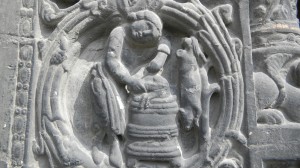
Gothic cathedrals and basilicas gave working stiffs like us an honored place on their outer walls. But folks in the 13th century conceived occupations in a different way. [click to continue…]
by bria4123 on April 10, 2012
People in the 13th century classified their world so that every being had its place in a universal system. Their world included some strange creatures.
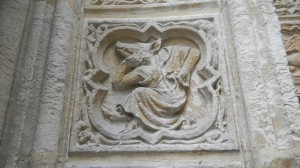
Is this carving on Rouen Cathedral of a medieval Rush Limbaugh? [click to continue…]
by bria4123 on April 9, 2012
So what’s more real, the individual tree, or the general category, tree? People who helped build the great Gothic cathedrals were butting heads over lots of questions.
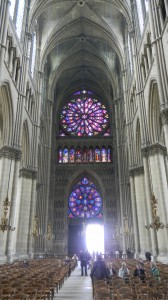
The world was changing for them, and Gothic cathedrals are masterpieces because they hold keys to medieval views of the universe as society was becoming more complex. People built the earlier Romanesque cathedrals to embody a divine order that everything God created fits into. Folks who built Gothic cathedrals also tried to create a total view of the universe, but how did they when the world was changing so much? [click to continue…]
by bria4123 on April 8, 2012
Today we marvel at Gothic cathedrals’ stone and stained glass. But when they were new, the intellectual ferment that happened around them was just as interesting.

Gothic cathedrals can’t be separated from medieval philosophy–people built the great Gothic cathedrals to represent their ideas of how the universe is integrated. But their world was changing as they were building them. Come and explore the minds behind the stone and glass. [click to continue…]
by bria4123 on April 6, 2012
I’ve dewlt a bit on Gothic cathedrals and Khmer architecture. What was happening in India at the same time?
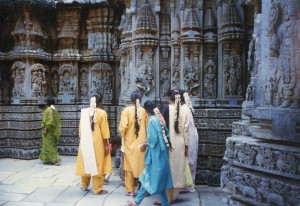
Indians too were building temples that expressed views of the whole universe, and their creations could flap wings with anyone else’s. [click to continue…]
by bria4123 on April 5, 2012
This blog has flown a to few places since the Part Three post on Chartres, but I want to take global cultural studies to new heights.
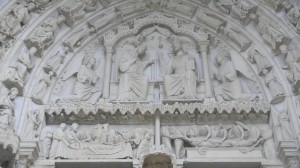
We can now take a new look at one of the most studied buildings in the West, and gain a deeper appreciation of it. [click to continue…]
by bria4123 on April 4, 2012
Come and explore the dark side with me.

The first three posts on Ta Prohm and Preah Khan explored their supernatural beauty. But I found sinister sides in them which made me uncomfortable at times. In this final post on Ta Prohm and Preah Khan, we’ll explore complexities in their personalities, and what they suggest about Khmer society during its glory days. [click to continue…]










